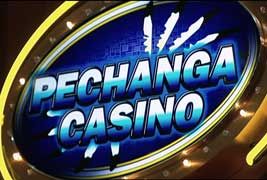The unexpected check on an Indian casino free-for-all
by Chris Reed | February 7, 2015 7:15 am
When state voters approved Proposition 1A[1] in 2000 — the measure paving the way for the broad expansion of Indian casinos in California — opponents warned that once casinos were a big money generator, there would be a free-for-all driven by this wealth and power. They said not to trust promises that Indian tribes wouldn’t try to acquire land in big cities and get around requirements that casinos only be built on tribal territory.
But it was only last year that the weakness of Proposition 1A came into full view. The North Fork Tribe of Mono Indians got the OK from state and federal authorities to build a large casino adjacent to busy Highway 99, 35 miles northwest of Fresno.
The casino site, however, was not long-held tribal land. It was purchased by the North Fork Tribe in 2012 and was 38 miles away from the nearest tribal land. This contradiction of promises made in 2000 didn’t bother state officials — not even the fact that the precedent it set might bring Indian casinos into every big city in the state.
So what happened to the North Fork casino proposal? Instead of being pushed through by big gambling money, the project was squashed with big gambling money. Other casinos funded a signature-gathering campaign to get what would become Proposition 48 on the November ballot.
 This is from a Monday story in the Los Angeles Times analyzing the final round of campaign spending reports released by state officials.
This is from a Monday story in the Los Angeles Times analyzing the final round of campaign spending reports released by state officials.
Rival Native American casino interests spent $18 million last year to defeat Proposition 48, which would have given permission for two other tribes to build a new casino near Madera, just north of Fresno, according to records filed by the campaigns.
A separate committee that supported the ballot measure spent $631,000, much of it from the North Fork Rancheria of Mono Indians, which planned to build the new casino near Madera, and the Las Vegas giant Station Casinos Inc., a partner in the project.
The measure was rejected by 61% of voters in the November election.
The campaign that defeated the measure on the November ballot was largely funded by the Table Mountain Rancheria, a Native American group that operates a casino 25 miles east of Madera, and Brigade Capital Management, a New York hedge fund invested in the Chukchansi Gold Resort & Casino in nearby Coarsegold, Calif.
Those interests spent $15.7 million on a campaign that argued that allowing an off-reservation casino would set the stage for more Indian casinos closer to neighborhoods in cities in California.
The distant tribe opposing Fresno-area project
But it wasn’t just nearby casinos protecting their interests. A casino more than 300 miles to the south, eager to avoid a precedent that could lead to it having tough competitors for the Los Angeles market, also joined the onslaught against the North Fork project.
Another group, including the Pechanga Band of Luiseno Indians, formed a second committee that spent $2.3 million to oppose the ballot measure.
That’s also from the Times account, which doesn’t mention Pechanga’s casino is in Temecula in southern Riverside County, less than an hour’s drive from much of affluent Orange County and from the east L.A. suburbs full of Asian-Americans who are Indian casinos’ best customers.
If Pechanga tribal leaders would spend $2.3 million to block a casino 300-plus miles away, it boggles the mind to think how much they’d spend to block a fancy Indian casino project in the Los Angeles Basin.
And so the main check on “reservation shopping” to speed the spread of Indian casinos throughout California is other Indian casino operators, who perceive gambling as a zero-sum game in the Golden State and don’t want to lose market share.
- Proposition 1A: http://www.lao.ca.gov/ballot/2000/1A_03_2000.html
Source URL: https://calwatchdog.com/2015/02/07/the-unexpected-check-on-indian-casino-free-for-all/